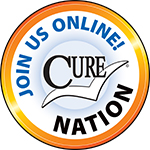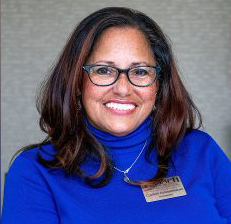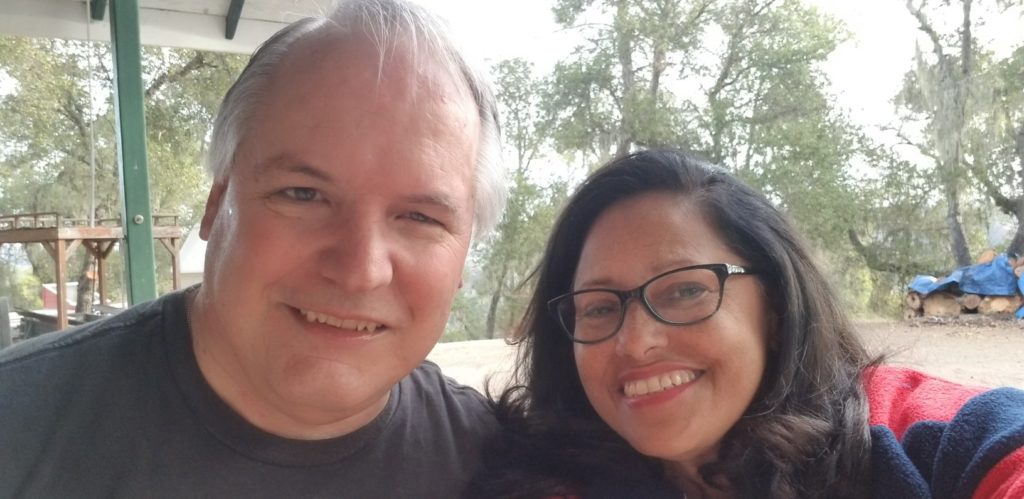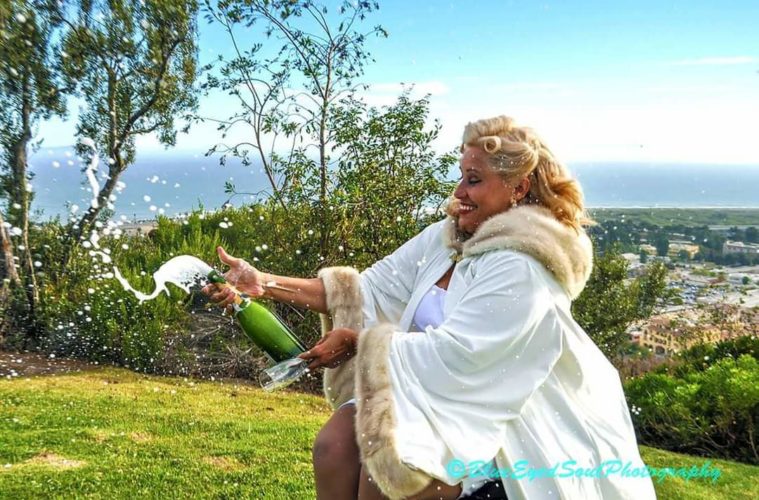 CURE NATION: It’s the laugh that gets you first. Preparing to write a profile for this former Ms. Wheelchair California, I had done a basic Google search for facts, listened to one of Cindy’s interviews and was looking forward to interviewing her myself. My interview subject sounded like an interesting, bright woman, one who had landed in a wheelchair as I had, and who had chosen a life path different from my own. he phone rang, I had my laptop ready and then … I heard her laugh.
CURE NATION: It’s the laugh that gets you first. Preparing to write a profile for this former Ms. Wheelchair California, I had done a basic Google search for facts, listened to one of Cindy’s interviews and was looking forward to interviewing her myself. My interview subject sounded like an interesting, bright woman, one who had landed in a wheelchair as I had, and who had chosen a life path different from my own. he phone rang, I had my laptop ready and then … I heard her laugh.
Suddenly Cindy DeJesus seems like the best friend I hadn’t talked to in way too long. She speaks as the Everywoman of Wheelchairs, and I am delighted to just spend time with her. Listening to that laugh combining the best parts of both a delighted giggle and an earthy chortle, I know I like Cindy.

Triumph Foundation Ambassador, Cindy DeJesus
“I think people need to LIVE,” says Cindy firmly, after the introductions. “There will always be a time when you feel ‘different’. But “different” isn’t necessarily a bad thing! Figure out what you want and go get it. or example, I was told my life would be different, that I’d never walk again – and then I walked for 30 years! Doctors also told me that I wouldn’t be able to feel anything from my level of injury down. And I do!”
It had happened when Cindy was 12 years old and up in a treehouse with her friend. Her friend’s mom told them to hurry up and get down there, and Cindy did. The fall broke her T-12 and L-1, requiring a graft from her hip. She was in a coma for several days, in rehab for several months.
“I feel for the doctors, faced with a stubborn 12-year-old who was NOT going to be told no. The doctors all said, ‘You are going to be in a wheelchair now, get used to it.’ Luckily, my dad and friends believed in me, not the doctors, and built me a gym in our living room. The doctors were amazed when I walked into their offices, it was so gratifying! I had AFOs up to my thighs, just like Forrest Gump.”
Cindy, an old hand at doing interviews, has a lot to say and she says it well.
“I returned to school in a wheelchair. In the 70s, most schools were NOT accessible, so I had to fight for everything. A lot of people are scared to be seen in a wheelchair, but not me.”
Impressed by her forceful personality, I’m still looking for what drives this woman. She has faith, intelligence and guts. But when I ask about the purpose behind her acts, she hesitates.
“There must be purpose, I know that. I’ve spent my life looking for my purpose. I’m hesitant to identify it though, because I believe when you’ve lived your purpose, God will take you home.” I pause, temporarily at a loss for words, a rare occurrence. Luckily, Cindy continues, “I coach, teach and inspire. I’m a life coach. Most coaches have coaches, and mine said, “I dare you to take your head out of that book and join that pageant.” I told her, “You do know that if I do this, I have to win. That’s just the way I am.” Cindy crows another laugh and says boldly, “So, I won!”
Although Cindy’s journey took her through many pageants, some exclusively for people in wheelchairs and some not, it is the platform that she sees as the big take-away.
“I so love using it (the crown) to spark a conversation. They may not listen to one person, but they’ll listen to one person with a shiny thing on her head. I’ve had the pleasure of talking to preschoolers – without the crown and sash – and noticed the differences between those children and my own. Children grow up with a whole different set of eyes when they grow up with a parent with a disability. I think big and I want everyone else to think big. I tell my kids, dream big or you’ll settle for a lesser life.”

Cindy DeJesus with her husband
You can hear the smile in her voice when Cindy speaks about her 5 children and 5 grandchildren. When she speaks of growing up in her parents’ house with 4 brothers, however, she says quietly, “You did not speak of disability in my mother’s presence. It was something taboo, a subject to be ignored. Growing up with me, my kids know that a wheelchair doesn’t make anyone less beautiful. My kids see it like a pair of shoes. If you don’t like someone’s shoes, do you throw them out of your house?” It is clear that Cindy works hard to find a way to have what she prefers in her life. But how does she do it? Does she accept the things she doesn’t like, or just work to eliminate them? When Cindy states that she thinks kids of every age are great, I timidly ask, thinking back on my own experience … is even raising a 13-year-old girl great?
“I loved my kids when they were teenagers.” Cindy informs me, with a sincerity that sparks my envy. Maybe she senses my skepticism, because she continues, “When I felt they wanted to talk about something, we’d do a thing we’d call Midnight Runs. We’d all get in the car and go to Denny’s or whatever was open at night and we’d talk. The foster parenting days were very full. I had a long dining table and by the end of the night the table would be littered with veggies, edamame and scraps of paper. At one time I had 10 foster kids who had nowhere else to go. At my wedding, instead of tossing the bouquet, we tossed teddy bears to the kids. We ended up with more teddies than kids, so we ended up driving the extra teddies to the Salvation Army. The kids loved that!”
What Cindy Thinks About Cure Medical
When I discover that Cindy and her family have grown up in military circles, I understand her passion for Cure Medical products. Cindy sees in Cure Medical catheters the type of progress made in medical equipment available now, as opposed to what was available to the soldiers returning from previous military conflicts.
“I come from a very long line of military, so I can compare what soldiers with severe injuries are being offered now, compared to 10 or 20 years ago, and it is so impactful! Look at Cure Medical catheters, for example. I use them and I love them! At first, all that was available were indwelling catheters, or those big old red robins. I still had some sensation and I didn’t like either of those at all. I’d rather do intermittent cathing and Cure Medical’s straight catheters are the ones I prefer.”
Cindy has been active with numerous organizations, among them the Ventura County Military Collaborative, helping military and veteran families in need. When Operation Snowflake had to be cancelled due to Covid-19, Cindy reports that “…operation Snow Mobile brought gifts to 35 families and 55 veterans with only 2 weeks of planning! Families were adopted. It is such a great program that I began doing this with my family.” She is also an Ambassador with the Triumph Foundation, bringing in new people to benefit from Triumph’s events and support groups – now on Zoom – and getting people to socialize with others in similar circumstances.
“It’s really a battle of wits,” says Cindy thoughtfully. “I want to remind people that cracked glass can still be beautiful.”
You may also enjoy:
Bob Yant Pursues SCI Discoveries to Give People a Better Life
6 Ways to Help Make Cathing Less of a Pain
Patti Jasinski Shares One Mother’s View of Spina Bifida
Kids Love to Get Out, Enjoy Life! Vote For Your Favorite GOEL Photo
At 85, Jean Mooney Finds Urinary Retention Relief with the Cure Twist
Hit the Waves with Stoke for Life Adaptive Surfing
10 Years After Falling, Wesley Cumpton Battles Urinary Retention with Cure Catheters
Join Teal on the Hill for Spina Bifida Advocacy


